
I Y R E X P L A I N S :

H O W H A V E T H E F E D E R A L P A R T I E S

V O T E D O N I N D I G E N O U S R I G H T S ?
CENTRE FOR INDIGENOUS POLICY AND RESEARCH
APRIL 2025



I Y R E X P L A I N S :

H O W H A V E T H E F E D E R A L P A R T I E S

V O T E D O N I N D I G E N O U S R I G H T S ?
CENTRE FOR INDIGENOUS POLICY AND RESEARCH
APRIL 2025

The Canadian electoral system is inherently colonial and voting laws have historically been used to marginalize and exclude many communities, especially Indigenous, Black, and immigrant peoples. We appreciate the range of opinions that exist on voting and respect that many Indigenous community members believe that voting validates this system, undermines Indigenous sovereignty and traditional governance systems, and instead choose not to exercise their right to vote. We hope that this information helps youth navigate those conversations as they decide whether and who to vote for!
You can visit Elections.ca to see who’s running in your riding. You can also check to see if you ’ re registered to vote, and see where to vote!
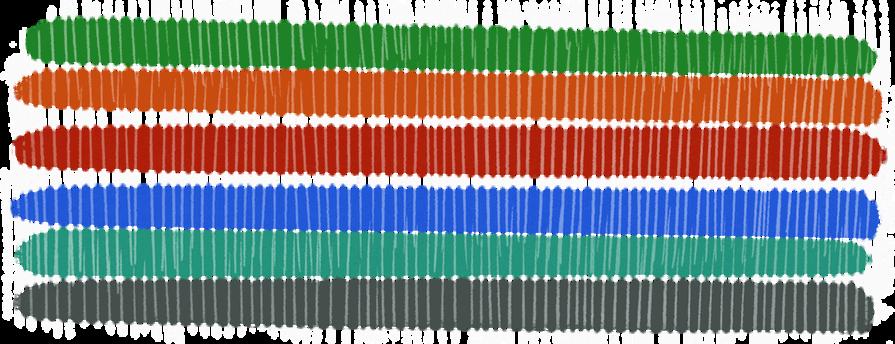
In this IYR Explains, we will be breaking down the voting record of each major federal political party on bills that strongly impact Indigenous youth and their communities from roughly the last 40 years. Most of the bills we are highlighting are bills specific to Indigenous peoples and communities, while some are key bills that impact everyone – like ones related to childcare or pharmacare access.

While not every major party has been in power, looking at their voting records and stances on bills can shed light on how they understand certain issues, how they approach problems, and how they view the realities and rights of Indigenous communities. Examining these bills and issues also always highlights colonially-imposed power imbalances in how decisions impacting Indigenous rights and communities are made.

ains breaking down Canada’s major federal political parties –






The legislative process is how Parliament creates new federal laws, beginning with the introduction of bills.
Bills can be introduced by Members of Parliament or Senators. Once a bill is introduced, it is debated, studied in committee, and possibly amended before being read and voted on multiple times in both the House of Commons and the Senate.
Both the House and the Senate must agree for the bill to pass, and then the Governor General gives their “royal assent” (approval) and the bill becomes law
If you want to know where a bill was introduced, you

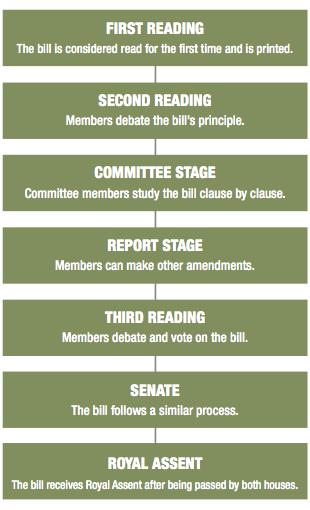
Outlined above are the steps that a bill takes to become law. In this example, the bill started in the House of Commons.
Source: Parliament of Canada
*Disclaimer: This is not a comprehensive list of all bills impacting Indigenous rights, youth and communities. The bills discussed here are some highlights from the last 40 years or so!

BILL C-29: NATIONAL COUNCIL FOR RECONCILIATION ACT (2022):
Sponsor: Marc Miller (then-Minister of Crown-Indigenous Relations), Liberal
Date: The bill was introduced in Parliament in June 2022 and passed December 1, 2022 It achieved Royal Assent and became law on April 30, 2024.
The bill aimed to establish an independent National Council for Reconciliation to oversee the federal government’s progress on Indigenous reconciliation, namely the Truth and Reconciliation Commission’s 94 Calls to Action (CTAs). The creation of the Council itself was in response to CTA #53, which calls upon the Parliament of Canada to establish a National Council for Reconciliation. The council was incorporated on March 5, 2025
Bill C-29 also requires the Council to submit an annual report to the Minister of Crown-Indigenous Relations on the progress made toward reconciliation, which will include recommendations to promote reconciliation in Canada. In response to this report, the Prime Minister is required to publish a report on the “state of Indigenous peoples.”, which will include how the government plans to advance reconciliation. Neither of these reports have been completed at this time.
Vote details from December 1, 2022 - 3rd the establishment of a national council for
Liberal – 148 in favour, 0 against, 5 pa
CPC – 111 in favour, 0 against, 4 paired
BQ – 30 in favour, 0 against, 1 paired
NDP – 23 in favour, 0 against Green – 2 in favour, 0 against
Independent - 3 in favour, 0 against

Pairing is an agreement between the governing party and members of other parties in parliament intended to balance out votes when there are absences for commitments like travel, or due to illness. A “paired” vote means that an MP agreed to abstain from voting because the member of the other party they are paired with was unable to vote.
Sponsor: Seamus O’Reagan (then-Minister of Indigenous Services), Liberal

Date: The bill was introduced in February 2019 and passed on April 11, 2019. It achieved Royal Assent and became law on June 21, 2019
About the bill:
The bill aims to recognize Indigenous jurisdiction over child and family services. The bill was created to work toward the implementation of UNDRIP and to respond to CTA #4, which calls upon the federal government to enact “Aboriginal child-welfare legislation that establishes national standards” and includes a call to “affirm the rights of Aboriginal governments to establish and maintain their own child-welfare agencies”.
Since its implementation, some provincial and territorial governments have opposed the bill. Quebec took the matter to the Supreme Court, saying that the bill is unconstitutional and undermines the rights of the province in their jurisdiction over child and family services. In February 2024, the Supreme Court of Canada ruled that Bill C-92 is constitutional and falls within the federal government’s jurisdiction. Many of the MPs that voted “ no ” on this bill also shared concerns about jurisdiction, as well as concerns about the bill being rushed through the system.
Final vote details:
Vote details from April 11, 2019 - Time allocation for Bill C-92, An Act respecting First Nations, Inuit and Métis children, youth and families*:
Liberal - 151 voted in favour, 0 against, 4 paired
CPC – 0 in favour, 73 against
BQ – 0 in favour, 2 against, 3 paired
NDP – 0 in favour, 29 against, 1 paired
Green - N/A
Independent - 1 voted against
*
Sponsor: David Lametti (then-Minister of Justice and Attorney General), Liberal
Date: The bill was introduced in December 2020 and passed May 25, 2021.
About the bill:

This bill aims to align Canadian law with the United Nations Declaration on the Rights of Indigenous Peoples (UNDRIP). The bill committed the government to work in partnership with Indigenous peoples to develop an action plan for implementation. The UNDRIP Action Plan has been developed for 2023-2028, and you can read it here
Good to know:
This was the second attempt to bring Canadian laws in line with UNDRIP, with Bill C-262 (2016) failing to pass (more information on this bill below). When Bill C-15 was going through parliament, the concerns shared by Conservative MPs were mostly focused on Free, Prior and Informed Consent (FPIC) and how this bill may allow “veto” powers for resource projects. The Green MP who voted against this bill shared concerns about it not including a distinctions-based approach, and discussed the fact that Indigenous rights are inherent, with no one being able to give them or take them away
Final vote details:
Vote details from May 25, 2021 - 3rd reading and adoption of Bill C-15, An Act respecting the United Nations Declaration on the Rights of Indigenous Peoples:
Liberal – 149 voted in favour, 0 against CPC - 0 in favour, 116 against BQ - 32 in favour, 0 against NDP - 23 in favour, 0 against Green - 2 in favour, 1 against Independent - 2 in favour, 1 against

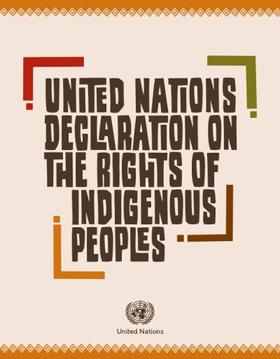
Sponsor: Romeo Saganash, NDP (Cree from Waswanipi, Quebec)
Date: The bill was introduced in April 2016. The bill continued in Parliament until 2018, but did not pass
About the bill:
This was the first bill aiming to align Canadian laws with UNDRIP but ultimately failed to pass. The bill passed in the House of Commons, but it failed in the Senate due to delays and opposition from some senators.
Good to know:
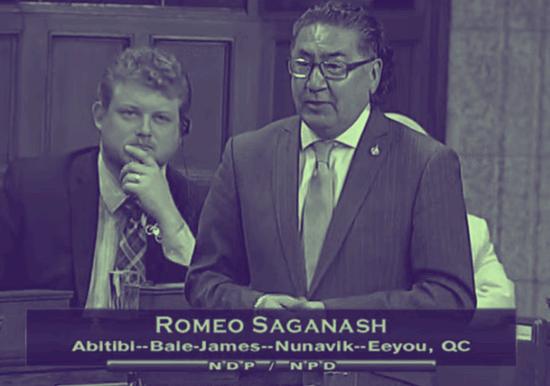
Critics of the bill in the House and Senate shared concerns around Free, Prior and Informed Consent (FPIC) and the potential for veto power over projects. There were also concerns shared by a Conservative MP about Bill C-262 causing delays in passing future bills and that it wouldn’t be feasible to consult all First Nations, Métis and Inuit governments with every bill.
Final vote details:
Vote details from February 7, 2018 - 2nd reading of Bill C-262, An Act to ensure that the laws of Canada are in harmony with the United Nations Declaration on the Rights of Indigenous Peoples:
Liberal - 165 in favour, 0 against, 1 paired CPC - 0 in favour, 76 against BQ - 9 in favour, 0 against, 1 paired NDP - 41 in favour, 0 against Green - 1 in favour, 0 against Independent - 1 in favour, 0 against
This was the last vote held for this bill. After this, the 2019 federal election was called, dissolving Parliament. When Parliament is dissolved, all Parliamentary business such as debating bills ends, and all bills not yet passed will “fall off” the agenda They can be reintroduced when the next session of Parliament resumes after the election but as in the case of Bill C-262, this does not always happen.
Sponsor: Senator Peter Harder, Independent (Progressive Senate Group)
Date: The bill was introduced in October 2016 and passed December 4, 2017. It achieved Royal Assent and became law on December 12, 2017.

About the bill:
The bill aimed to address sex-based inequities in the Indian Act. In particular, the historical discrimination against Indigenous women who lost their status if they married non-Indigenous men. While Bill C-32 (more on this below) gave disenfranchised women the right to have their status back, through a 2019 amendment, Bill S-3 allowed women who lost their status before 1951 to regain it, among other changes. Overall, it allowed more women and their children to regain status.
Good to know:
When this bill was discussed during its third reading, opposing NDP and Green MPs voiced that Bill C-262- UNDRIP Implementation Act (above) should be given priority and discussed instead of Bill S3. Former NDP MP Romeo Saganash also brought up that rather than making amendments to the Indian Act, it should be abolished and replaced.
Final vote details:
Vote details from December 4, 2017 - Motion respecting Senate amendments to Bill S-3, An Act to amend the Indian Act (elimination of sex-based inequities in registration):

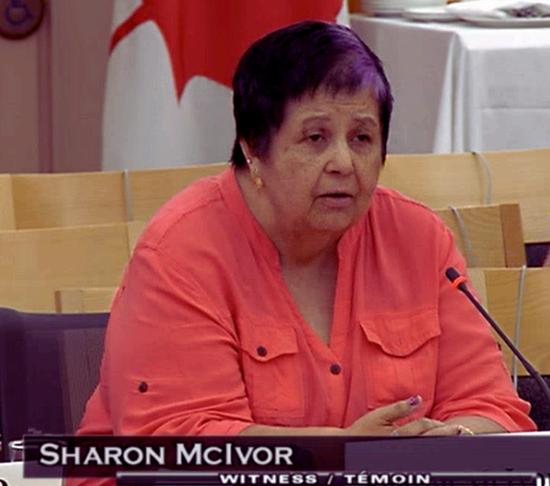
Activist and Indian Act status reform advocate Sharon McIvor speaking to a Senate committee about ongoing gender discrimination in the status provisions of the Indian Act in 2017
Sponsor: David Crombie (then-Minister of Indian Affairs and Northern Development), Conservative
Date: The bill was passed in April 1985.
About the bill:

The bill aimed to align the Indian Act with gender equality under the Canadian Charter of Rights and Freedoms. The bill gave women who previously lost their status (and their children) their right to have it back. It also included changes that allowed First Nations bands to make their own membership rules, separating First Nations status from band membership It also created the concepts of 6(1) and 6(2) First Nations status.
Good to know:
The introduction of 6(1) and 6(2) status categories caused confusion at the time, and created the “second generation cut-off", still preventing some from passing on the status entitlement to their children and grandchildren –regardless of sex.
Bill C-31 came after another attempt to address sex-based inequities in the Indian Act – Bill C-47. Bill C-47 proposed that status and band membership would not be determined by sex as well as a “one-quarter” rule where grandchildren of registered status First Nations would be eligible for status. This bill did not pass and ended up falling off the agenda when an election was called.
Final vote details:
The voting record for Bill C-31 is unavailable, but it was passed under former Conservative Prime Minister Brian Mulroney. In passing this bill, then-Minister of Indian Affairs and Northern Development (DIAND) David Crombie acknowledged that “it did not address the longstanding desire by the Indian people for self-determination".
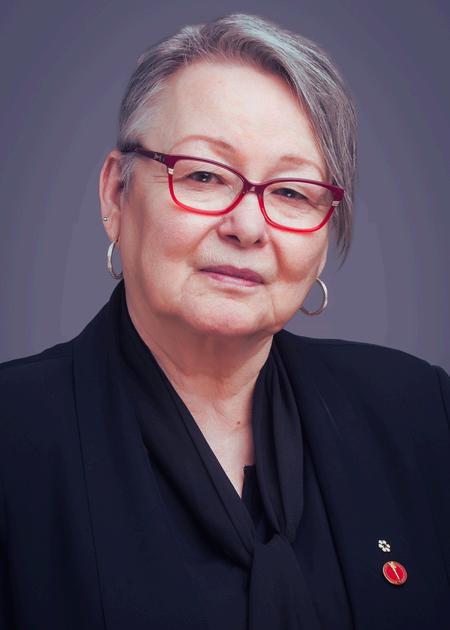
push the bill forward and make status more inclusive Lovelace-Nicholas went on to be the first Indigenous woman appointed to the Senate
Sponsor: Jim Flaherty (then-Minister of Finance), Conservative
Date: The bill was introduced in October 2012 and passed December 5, 2012. It achieved Royal Assent and became law on December 14, 2012.

Bill C-45 was a piece of omnibus legislation, meaning it proposed to amend several Acts – in this case more than 60 - and included many different pieces in the bill. It changed multiple acts, including the Indian Act, in ways that made it easier for private companies to use Indigenous lands without federal oversight. The bill also made changes to the Navigable Waters Protection Act (now the Navigation Protection Act) and the Canadian Environmental Assessment Act by removing protections for most bodies of water. This was by removing federal oversight (approval from the Minister of Transport) and the need for federal environmental assessments for things like logging, pipelines, dams and other industrial development that may impact protected waters
The bill's passage ultimately contributed to the rise of the Idle No More movement The Movement mobilized on the fact that Bill C-45 did not consider Indigenous rights and would have detrimental impacts to the environment and Indigenous lands. In support of the Idle No More Movement, six Cree youth and a guide walked from Whapmagoostui First Nation on the northern coast of Quebec to Ottawa to protest at Parliament Hill – a 1,600 KM walk called “The Journey of Nishiyuu (the People)” When moving through Parliament, MPs from opposing parties also voiced concerns around the loss of environmental protections and impact on Indigenous rights.
Vote details from December 5, 2012 - 3rd reading a implement certain provisions of the budget tabled in measures
CPC - 156 in favour, 0 against Liberal - 0 in favour, 32 against NDP - 0 in favour, 91 against Green - 0 in favour, 1 against BQ - 0 in favour, 3 against Independent - 0 in favour, 1 against

Sponsor:
Mark Holland (then-Minister of Health), Liberal

Date: The bill was introduced in February 2024 and passed June 3, 2024. It received Royal Assent and became law on October 10, 2024
About the bill:
Introduced by the Liberal government through the former Supply and Confidence deal held with the NDP, the bill aimed to implement national universal pharmacare in Canada. The bill requires collaboration with Indigenous governments, provinces, and territories to improve the accessibility and affordability of prescription drugs. At the time of passing, it made it so contraception and diabetes medications would be free of charge.
Good to know:
When debating this bill, opposing Conservative MPs shared concerns around how federal coverage for these medications would overlap or interact with private coverage that some people have, as well as the cost of the program. Opposing BQ MPs voiced concerns about the program infringing on their provincial jurisdiction and their existing provincial prescription drug plan.
Final vote details:
Vote details from June 3, 2024 - 3rd reading and adoption of Bill C-64, An Act respecting pharmacare:
Liberal - 143 in favour, 0 against, 5 paired
CPC - 0 in favour, 113 against, 3 paired
BQ - 0 in favour, 29 against, 2 paired
NDP - 20 in favour, 0 against
Green - 2 in favour, 1 against
Independent - 0 in favour, 1 against

Sponsor: Karina Gould (then-Minister of Families, Children and Social Development), Liberal
Date: The bill was introduced in December 2022 and passed on June 19, 2023. It received Royal Assent and became law on March 19, 2024.

About the bill:
The bill sought to create a national framework for early learning and childcare, ensuring affordable childcare across Canada. The bill outlines a commitment for long-term funding for early learning and childcare in collaboration with provinces, territories, and Indigenous communities. Within the bill, it states that one of its goals is to “contribute to the implementation of UNDRIP” and says that agreements with Indigenous communities must be guided by the principles of the Indigenous Early Learning and Childcare Framework.
Good to know:
While the bill passed unanimously, during debates, some Conservative MPs raised concerns around the quality of childcare this would provide, and pointed out that for many people, childcare is inaccessible or does not exist in their area, regardless of cost. Some BQ MPs brought up concerns surrounding overlap with Quebec’s jurisdiction on childcare and their provincial childcare programs.
Final vote details:
Vote details from June 19, 2023 - 3rd reading and adoption of Bill C-35, An Act respecting early learning and childcare in Canada:
Liberal - 151 in favour, 0 against, 2 paired
CPC - 110 in favour, 0 against BQ - 27 in favour, 0 against, 2 paired
NDP - 23 in favour, 0 against Green- 2 in favour, 0 against Independent - 2 in favour, 0 against

The bills outlined above are just a snapshot of past voting records on bills that affect folks and their communities. If you ’ re curious about how MPs and parties have voted visit openparliament.ca or the Parliament website.

As we head into the 2025 federal Election, IYR will continue sharing information about the major federal political parties and their stances on Indigenous rights and issues impacting Indigenous youth. While we will be sharing information to keep Indigenous youth informed in voting, we appreciate the range of opinions that exist and respect that many Indigenous community members believe that voting validates a colonial system while undermining Indigenous sovereignty and traditional governance systems, and instead choose not to exercise their right to vote. IYR is a nonpartisan organization and this content is meant solely for information sharing purposes.
About the National Council for Reconciliation
Call to Action #4
How a Bill Becomes Law
Indigenous Jurisdiction and Bill C-92 at the Supreme Court of Canada
Bill C-29: National Council for Reconciliation Act (2022)
Bill C-29, Vote details from December 1, 2022
Bill C-92: Indigenous Child Welfare Act (2019)
Bill C-92, Vote details from April 11, 2019
Bill C-92: Open Parliament
United Nations Declaration on the Rights of Indige Peoples (UNDRIP)
Bill C-15 - UNDRIP Implementation Act (2021)
Bill C-15, Vote details from May 25, 2021
Bill C-15 : Open Parliament
Bill C-262 - UNDRIP Implementation Act (2016)
Bill C-262, Vote details from February 7, 2018
Bill S-3 - Indian Act Amendment (2017)
Bill S-3, Vote details from December 4, 2017
Bill C-45 - Jobs and Growth Act (2012)
Bill C-45, Vote details from December 5, 2012
Bill C-45: Open Parliament
Idle No More Movement
Bill C-31 - Indian Act Amendment (1985)
Bill C-31, Background Information
A Legislative History of Bill C-31 – Western University
Bill C-64, the Pharmacare Act (2024)
Bill C-64, Vote details from June 3, 2024
Bill C-64: Open Parliament
Bill C-35, Canada Early Learning and Childcare Act (2023)
Bill C-35, Vote details from June 19, 2023
Glossary of Parliament
Indigenous Early Learning and Childcare Framework Residual Sex Based Discrimination in the Indian Act – York



